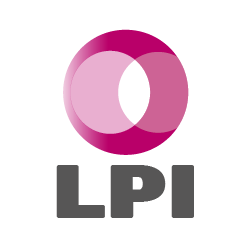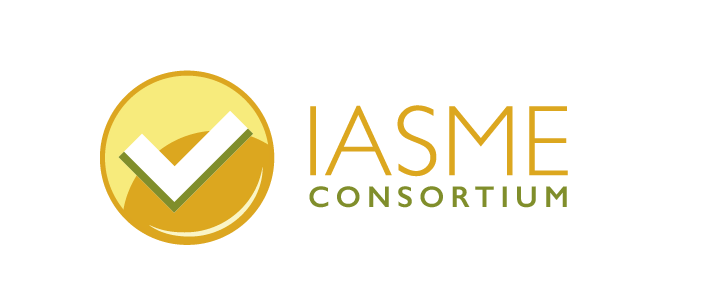LPI Fellow and consultant Myles Runham writes:
Language matters. But that much?
The last issue briefly mentioned that I have spent some time over the last few weeks attempting to convene a conversation about developing standards for digital learning. This has required what, I believe, is called sticking one’s head above the parapet. It’s an enlightening experience. Much debate was generated, mostly very helpful, if not always clear. There is an attempt to summarise responses so far in this post. This is very much my summary and I declare that I have an axe to grind. The challenge for the industry is that we all tend to have at least one each.
It reminds me of the parable of the blind people and an elephant. The story tells of a group of blind people hearing that a strange creature, an elephant, is in town. They decide to go and inspect the creature by touch. Each feels a different part and describes it accordingly as a wall, a spear, a trunk, a fan and so on. Without comparison and context, they have no means of discovering what they are sensing.
Our L&D tribe is a similar group when it comes to pondering what we mean by learning. Various preoccupations and habitual coinage rises to the surface. As in some of the blind people and elephant narrative, we come to disagreement – not to blows quite, I hope – and are unable to make progress in our deliberations. This can lead to ponderous bouts of classification amongst the categories of education, training, learning, instruction, teaching etc. I wonder if, to the outside world, we seem like a conclave of the priesthood classifying angelic bodies whilst the church empties around us. I fear that these conversations, though attempting clarity, reduce the chance of relevance of what we do.
Call it what punters call it
The education market, from what I observe, is less concerned with this debate. The audience of students is relatively well defined. The teacher role is pretty clear. The relationship between the two and the desired outcome is easy to understand. There is a shared interest in the teaching experience and the effectiveness for the student. I realise this is a gross simplification, but the institutional limitations of education are helpful in focusing activity and attention (setting aside the political differences of opinion). As I type this paragraph, I can imagine readers rustling their newspapers at me. Perhaps these education folks are describing a horse under their blindfolds?
“Your user defines what your service is”.
Lou Downe, “Good Services”
In her brilliant book “Good Services”, Lou Downe walks through considerations of designing effective services. In pages chock full of excellent advice, we are told that our uses define what our service is. This is more than only what they call it, although labels are powerful signals of expectation and we should heed them. So, if our service is called training by our users, we had better take note. Users preconceptions, expectations, previous experiences and social cues all come together to fix that definition. This tells us everything we need to know about the value they ascribe to our service. Whatever the conclave says, that’s what we are expected to do and the outcome they seek from us. It is also the single greatest clue to how we should think about the success or otherwise of our efforts.
During these debates about the value of developing standards for digital learning, I have tried to avoid groping elephants and focus on what it is that we do. How can a common understanding of that activity and the tools we use be arrived at without descending into theology? I am more interested in creating the shipping container equivalent for L&D that I am about the logistics and the cargo. A simple box that changed the commercial world for toy makers, bicycle sellers and fast fashion alike. Interoperability is a real problem for many customers.
Beware The Learning Maximiser
One more metaphor, if I may. There is a famous thought experiment in the AI field called the Paper Clip Maximiser. This video is a neat summary. It tells the story of a paper clip manufacturer using an AI machine to make paper clips and save on manufacturing effort. The sole goal is to make those clips. As it grows in capability, the machine ends up destroying the world around it, single-mindedly (and dumbly) gathering the resources to make more clips. The AI is intelligent but lacks judgement. Careful what you wish for, etc.
Reading the story again, I wondered what would “The Learning Maximiser” do? What would it single-mindedly create to fulfil its goal of delivering as much learning as possible? I suspect, with the industry as it stands, it would become expert in creating eLearning content and hosting webinars. This is what the industry makes. The natural extension of the efficiency, from the LMS to the SCORM object, is a production line of those units. The maximiser would cancel meetings to make way for webinar bookings. It might incentivise completions with pay rises, demotions and promotions. A day off for a full set of happy sheets? Less dangerous than the paper clip frenzy, but not quite the value and impact we hope for.
Efficiency, consistency and predictability are what standards are most often created for. This is no reason not to attend to quality of design and definition of outcomes, rather that the standards aid that effort. A shipping container can be used to move haute couture, high street brands and cheap fakes. Waste and cost are reduced, whatever the intended customer need. A set of benchmarks for use of tools and content will help create foundations for understanding engagement and efficacy. It will not tell the whole story, but will help us describe what happens when we do what we do.
There is opportunity here for us, I believe. We can collaborate to solve some important mutual problems to which we apply technology solutions: problems of scale, of efficiency and of relevance. We can call that learning…or whatever…
About the author – Myles Runham:
Myles is an experienced senior leader in both learning services and digital business, having worked in around the internet for 20 years. He has a track record for strategy development and delivery in a variety of digital services, taking ideas from inception, through business case and into launch and operational management.
A deep understanding of digital business and product management is coupled with extensive practical knowledge of managing and leading learning teams across technology, content, product and design functions. This is evidenced in both strategic and practical advice on how to adopt user experience thinking, agile development and product development techniques for learning and development teams, bringing digital thinking to life for senior stakeholders and teams on the ground.
His experience combines more recent leadership roles in learning and learning technology with managerial roles across a variety of disciplines. This history includes roles as the Head of Digital for the BBC Academy, Managing Director of Ask.com Europe (AKA Ask Jeeves) and Head of Interactive Learning for BBC education services, across television, radio and online content and products.
Myles is an LPI consultant – click here to find out more










Leave A Comment